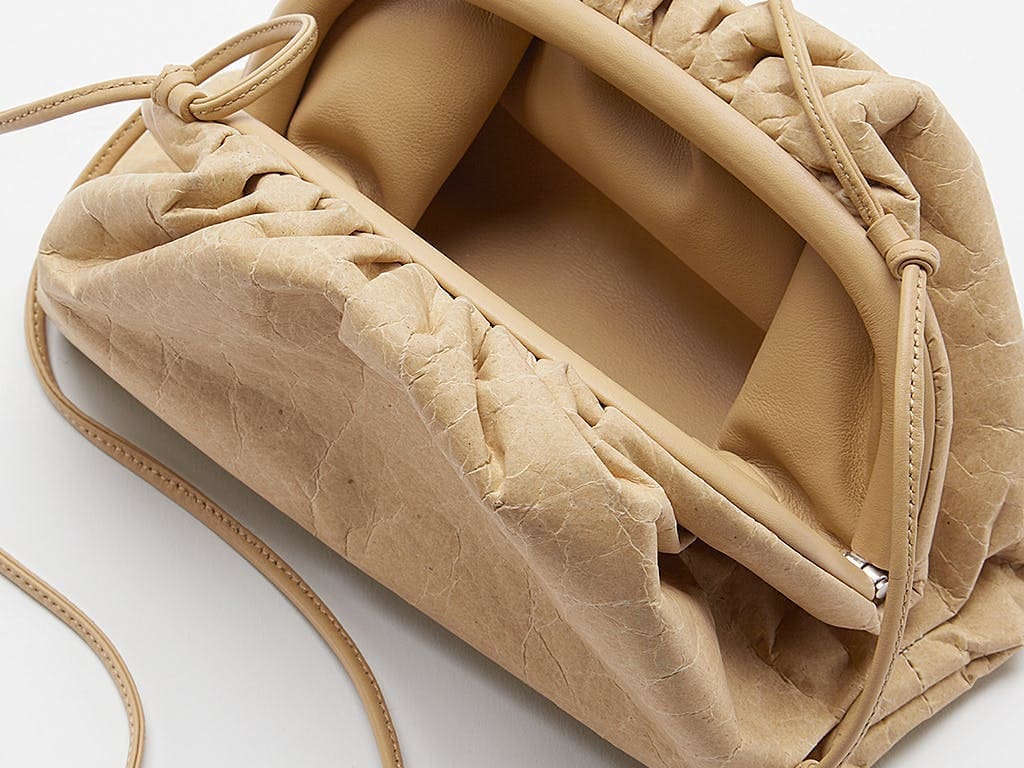Bottega Veneta has recently launched a new line of handbags made from 100% recycled FSC-certified cardboard paper to keep up with the market of sustainable products.
As demand for more eco-friendly apparel choices continues to rise, the Kering-owned luxury accessories company, which has been headed by former Celine designer Daniel Lee since 2018, has ramped up its green initiatives in recent years.
Bottega Veneta is taking a step away from its classic woven design and has unveiled a new collection range titled the Kraft Paper.
The new line remakes some of the most iconic label bag designs from recycled and recyclable paper, giving the finished product a naturally crumpled appearance.

The raw material is treated with aliphatic polyurethane film and microfibre fabric, which gives the paper-based bag extra protection and waterproof qualities. Most of the bags in the collection are supported with a magnetic frame and is lined with calf leather, which makes them not vegan-friendly, cruelty-free or low-carbon choices, but a step forward nonetheless for a luxury brand to leap into using circular materials.
Kering, the brand’s parent company, is making major strides in greening its operations in response to consumer outcry over the responsibility of the fashion industry in pollution, waste and the climate crisis.
Over the past few years, it has cleared its intentions to put sustainability at the forefront of its strategy, from hosting a sustainability-focused conference during Shanghai Fashion Week last year, to most recently appointing celebrity actress-activist Emma Watson to its board of directors and chair of the sustainability committee.
Bottega Veneta has previously debuted 100% biodegradable boots made from coffee and sugarcane on the runway.
References:
Green Queen

